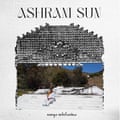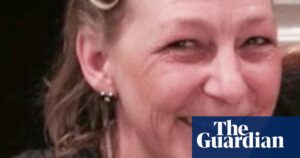When Surya Botofasina was growing up on an ashram in California, he had no idea that his mentor, a woman he knew as Swamini Turiyasangitananda, was also known by millions around the world as Alice Coltrane. As a teenager on a visit to Los Angeles, he was astonished to see devoted fans greeting her like a rock star, rhapsodising about how her music had changed their lives. Botofasina now makes devotional music inspired by his late mentor, often working with the likes of Carlos Niño, Miguel Atwood-Ferguson, Dwight Trible and André 3000, part of a fertile Los Angeles scene that explores the overlapping spaces between jazz, ambient and devotional music.

Much of Ashram Sun aspires to the condition of nature, with instruments replicating babbling brooks, birdsong, chirruping insects and the rhythms of the wind. But this is an unpredictable and volatile take on the pastoral. There Will Be Brighter Days starts as a gentle, amniotic throb that slowly mutates into something tempestuous, with Botofasina hollering in tongues while clarinet player Angel Bat Dawid and guitarist Nate Mercereau spray out free improv. Chumash Pradesh Mandir Steps features Randal Fisher’s ecstatic flute over Bofotasina’s rumbling piano accompaniment, while (The Circle) Of Compassion starts as a piece of insistent minimalism that starts to break out of its straitjacket as woozy synth guitars and the torch-song vocals of MidnightRoba kick in.
A lot of meditation music is purposefully dull – it is designed to empty the mind, to instil a trancelike state, to focus thoughts inward. Parts of this album have that effect, creating the consciously torpid environment you might associate with a yoga class. But Botofasina also takes great joy in disrupting the pensive lethargy with rapturous improvisations, blissful drones and glistening, unsettling textures.
Also out this month
Flock is a supergroup of leftfield London musicians, and their second LP, Flock II (Strut), is a curious mashup of noisy improv, messy minimalism, electronic manipulations and Afrobeat rhythms. Intriguing moments come from the forays into ecstatic spiritual jazz and the more introspective, ambient, tabla-dappled tracks. Hawksmoor is the nom du band of Bristolian multi-instrumentalist James McKeown, whose second LP, Oneironautics (Soul Jazz), uses vintage analogue synths to draw from a specific era of 1970s electronica and krautrock, but often strays into pleasingly alien territory. Marysia Osu’s Harp, Beats & Dreams (Brownswood Recordings) is a piece of oddly wonky, disconnected R&B, where Osu’s heavenly harp flourishes are backed by ultra-slow breakbeats and mutilated samples. It’s most effective on the more minimal tracks such as Dream Language or Despite Being in Love, where her solos are drenched in reverb and wreathed in ghostly, highly textured percussion.
Source: theguardian.com

















